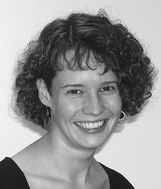Crossing the boundaries with Soft Matter
We are delighted to announce that this month the first issue of the RSC’s exciting new interdisciplinary journal Soft Matter was published. This is of particular benefit to you as a subscriber of PCCP as you have free access to the online version of Soft Matter, making it even easier for you to discover the leading research in this area.Soft Matter is a new forum for the communication of fundamental science underpinning the properties and applications of soft matter, and aims to unite the fragmented soft matter community in one ‘home’ journal. As the traditional boundaries between chemistry, physics and biology become ever more blurred the RSC is committed to publishing the most significant research from across the interfaces of these disciplines. Soft Matter will provide you with a wide range of the best articles from across these areas, reflecting the interdisciplinary nature of this field. The articles will be from physicists, chemists, biologists, materials scientists and chemical engineers and will appeal to a similarly broad range of readers; emphasis will be placed on those papers that appeal to an interdisciplinary audience. The scope includes soft matter assemblies; nanotechnology; surfaces, interfaces and interactions; synthetic methodology; theory, modelling and simulation. Colloids, polymers, gels, surfactants, biological systems and complex fluids will feature strongly.
The first issue of Soft Matter includes a Review by Professor Anna Balazs on modeling the flow of complex fluids in channels,1 an Opinion from Professor Richard Weiss about the use of gels in art conservation,2 and an Emerging Area by Professor Tim Deming on peptide hydrogels.3 Primary research includes a Communication from Dr Wilhelm Huck about polymers brushes that switch between hard and soft matter4 and a Full Paper by Professor Karen Wooley on the solution and surface assembly of shell crosslinked nanoparticles.5 The inaugural issue also includes a Comment from the Nobel Laureate Pierre-Gilles de Gennes on the future and origins of soft matter,6 and an Editorial from the Chairman of the Soft Matter Editorial Board, Professor Ullrich Steiner.7 Many Advance Articles are available now on the website (http://www.softmatter.org/); PCCP subscribers can read these and future articles in Soft Matter free online.
The scope of PCCP covers all aspects of physical chemistry, biophysical chemistry and chemical physics, and will continue to include soft matter research of relevance to a general physical chemistry audience. In this way the journals of PCCP and Soft Matter are complementary.
Recent soft matter articles published in PCCP include Hot Articles by Professor Oliver Steinbock on bubble-guided tube growth in reaction–precipitation systems8 and by Dr Hartmut Bracht on ionic diffusion processes in silicate glasses9. Invited Articles include a review by Professor Julian Eastoe on self assembly in green solvents10 and by Professor Helmuth Möhwald, who reviews methods of coating colloidal particles and fabrication of hollow multilayer polyelectrolyte capsules.11
PCCP continues to encourage authors to submit their soft matter research of relevance to the general physical chemistry reader and submissions are welcome at http://www.rsc.org/resource/.
As a PCCP subscriber, we hope you enjoy your free access to Soft Matter online, and look forward to receiving your views and your support.
With best wishes

Dr Carol Stanier
Editor, Soft Matter

Dr Susan Weatherby
Editor, PCCP
References
- A. C. Balazs, R. Verberg, C. M. Pooley and O. Kuksenok, Soft Matter, 2005, 1, 44 RSC.
- E. Carretti, L. Dei and R. G. Weiss, Soft Matter, 2005, 1, 17 RSC.
- T. J. Derning, Soft Matter, 2005, 1, 28 RSC.
- T. Farhan, O. Azzaroni and W. T. S. Huck, Soft Matter, 2005, 1, 66 RSC.
- J. L. Turner, M. L. Becker, X. Li, J.-S. A. Taylor and K. L. Wooley, Soft Matter, 2005, 1, 69 RSC.
- P.-G. de Gennes, Soft Matter, 2005, 1, 16 RSC.
- U. Steiner and C. Stanier, Soft Matter, 2005, 1, 11 RSC.
- S. Thovenel-Romans, J. J. Pagano and O. Steinbock, Phys. Chem. Chem. Phys., 2005, 7, 2610 RSC.
- F. V. Natrup, H. Bracht, S. Murugavel and B. Roling, Phys. Chem. Chem. Phys., 2005, 7, 2279 RSC.
- J. Eastoe and S. Gold, Phys. Chem. Chem. Phys., 2005, 7, 1352 RSC.
- G. B. Sukhorukov, A. Fery, M. Brumen and H. Möhwald, Phys. Chem. Chem. Phys., 2004, 6, 4078 RSC.
| This journal is © the Owner Societies 2005 |

